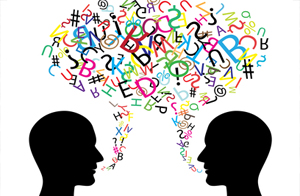
4 Things to Expect When Starting Counseling
What is counseling all about?
Written by: Laura Kotlowski, MA, LPC, LCDC, NCC, CCTP, EMDR Trained
Counseling is a journey of healing, gaining insights, and learning healthy ways to get along with life in general. We understand that starting counseling is a major decision, but remember you deserve to feel connected to your self-worth, to make sense of unhealthy patterns, and to learn positive coping skills.
Lots of people don’t know what to expect when starting counseling so here’s an article that can help with that. Let’s just say, it’s worth checking out. YOU are worth checking it out.
Here are 4 things to expect when starting the counseling process:
- Counseling is a gift to yourself that keeps on giving.
Counseling is one of the best investments you can make with self-care and your growth. It’s a “gift that keeps on giving” where you notice positive changes in your reactions to tough situations and emotions become easier to navigate. Counseling doesn’t CHANGE YOU, however, it can help you learn your strengths and live in the world as your best self.
- You are the “expert” and the counselor is a supportive guide.
Good counselors know the client is the expert of their life experience and their counseling goals. You may be surprised to learn that all you need to be the happiest and most peaceful version of yourself already lies within you. A counselor’s job is to help you navigate the unclear road that leads there…and sometimes to help you dig around until you find your deepest truths. Ultimately, you’re the one steering it all.
- Starting AND continuing the journey of counseling can feel overwhelming.
Counseling is a lot like exercising. Often times, starting a healthy physical journey requires you to think about it, research it, talk about it, and talk sometimes yourself out of it – loads of times before actually starting. We all know the benefits of exercising and would love those benefits – though a lot of times the idea of starting the journey can feel daunting and anxiety-provoking. If you’re anything like us, we’ve wished many times to have the benefits of working out or going to counseling without actually having to do it. We’re even writing a blog about it- read more about “Why Counseling Kinda Sucks.”
The only way to achieve goals is to take the first step towards them… and then another step… each step is less scary and overwhelming because you will start to see you are stronger and more resilient than you realized.
Back to the exercising analogy: if your goal is to run a marathon, bench-press 300 lbs, or knock out a 5-minute plank with ease – the first step would be to show up at the gym, walk a ½ mile, start with smaller weight, or shoot for a 15 second plank. In the world of counseling, we need to give ourselves that same grace. It takes time to increase our insight and awareness, learn new coping skills or choose healthier behaviors. We don’t have to know how to do it all right away and that’s ok! You can start by making an appointment with a counselor and share where you are today, even if you aren’t sure what your end goal is.
- You might surprise yourself and actually enjoy counseling!
Counseling is fun! Not EVERY minute, but lots of them can be! Sometimes we don’t love exercising but if we stick with it, we begin to feel the positive benefits. If we stay consistent, we actually start to look forward to the tasks that help us grow and ultimately make us stronger and healthier.
Sometimes people may avoid counseling because they envision lots of uncomfortable and tense emotions. While this may be true, you can also experience many preferred “positive” emotions. There is no better feeling than laughing your way to a solution, having the “ah-ha” moment where you almost see a light bulb turn on in your head, or unexpectedly feeling “lighter/at ease/peaceful” after sharing your feelings.
You have all that is needed within you to find peace. Our purpose, as counselors, is to witness this moment in your life story – as you bravely step out of fear into faith and begin this journey into healing and transformation. Our intent is to support and encourage your growth, and when needed, offer a compass of guidance towards truth and hope.
You’ve got this! Even so, counselors would be honored to walk along side you on this leg of your journey. We hope to see some of you out there on the path and wish ALL of you the absolute best.



Recent Comments